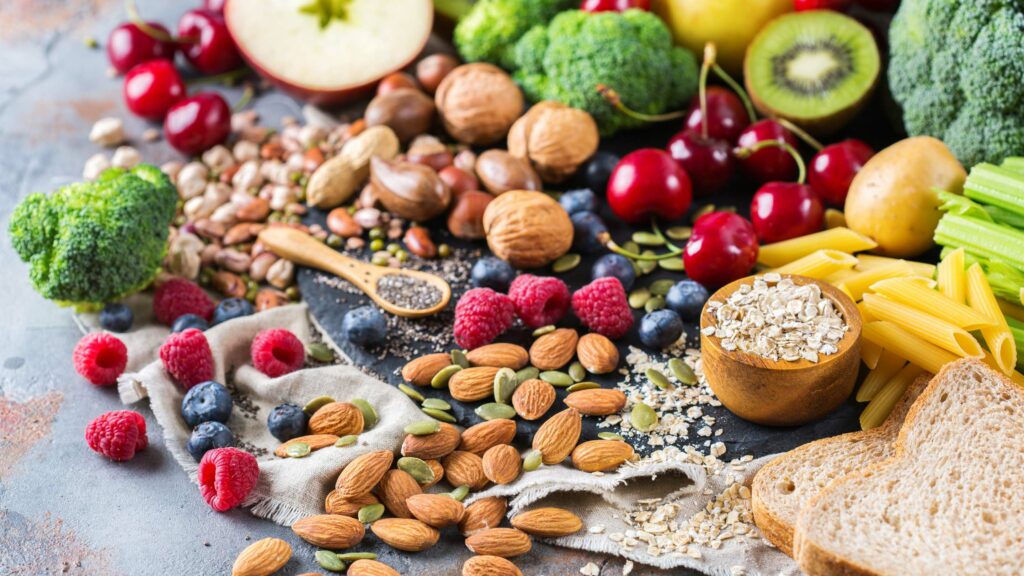Eating a lot of fiber (recommended daily dose is 200 gr of fruits and 400 gr of vegetables per day) results in a high level of bacterial diversity in the gut. Our overall immunity and health largely depends on this. But did you know that a healthy hormone level (a good balance between all estrogen forms as well as a good balance between estrogen and progesterone, for example) equally depends on which bacterial strains live in our gut?
Protective strains such as lactobacilli and bifidobacteria ensure that excess circulating estrogens are bound and leave the intestine via the stool and urine. If we lack these types of strains (for example, by consuming too little fiber), then excess estrogens are not bound and continue to circulate in the bloodstream and thus the tissues.
What can we do ourselves?
High-fiber foods, certain nutraceuticals, probiotics and phyto can be used to promote a healthy and protective microbiome that promotes estrogen binding and elimination. In turn, this reduces the risk of estrogen-sensitive cancers and symptoms of excess estrogen (cysts, endometriosis, PMS, migraines, etc)
Studies show that each increase in fiber of 10 grams per day is associated with a 7% reduction in breast cancer risk.
Some tips:
- In the winter season, feast on Jerusalem artichoke, chicory, carrots, winter purslane, white cabbage, Brussels sprouts onion, garlic, salsify, red cabbage, beet, leeks, squash, parsnips, mushrooms, celeriac, kale, sweet potato
- Nuts, seeds, seeds and spices such as red clover, turmeric, oregano, cinnamon, ginger also serve as breeding grounds for the "good" bacteria
- Be sure not to forget to add fermented products to your daily diet as well: think kimchi, sauerkraut, kefir, kombucha, for example.
- In addition, certain polyphenols have a beneficial effect on the microbial composition. think, for example, of pomegranate juice, green tea, turmeric, resveratrol. Recall that these substances must also be made active in a healthy intestinal flora. Hence, for example, fermented pomegranate juice are better because the fermentation process already makes the substances active immediately.
Simply put, diets high in animal protein increase estrogen levels, while plant-based vegetarian diets low in animal protein contribute to lower levels of excess estrogen. This is one reason why researchers consistently observe fewer cases of breast cancer in women who are vegetarians.
Vegetarian women excrete two to three times more estrogen in the stool than omnivores. Omnivores therefore have (on average) 50% higher concentrations of unbound estrogen compared to vegetarians.
Ref
- Belkaid Y, Hand T. Cell. 2014; 157 (1): 121-141. Shapira I, et al. ISRN Oncol. 2013)
- Plotnikoff GA. Glob Adv Health Med. 2014; (3): 33-43).
- Plottel CS, Blaser MJ. Cell Host & Microbe. 2011: 10 (4): 324-335, Paul B, et al. Clin Epigenetics. 2015 7 (112)
- Chen F, et al. J Ethnopharmacol . 2016; 179: 253-64. Ozdal T, et al. Nutrients. 2016; 8 (2): 78
- Harmon B. Public Health Nutr. 2014; 17 (9): 2087-2093. Fuhrman BJ, et al. J Clin Endocrinol Metab. 2014; 99 (12): 4632-4640,



